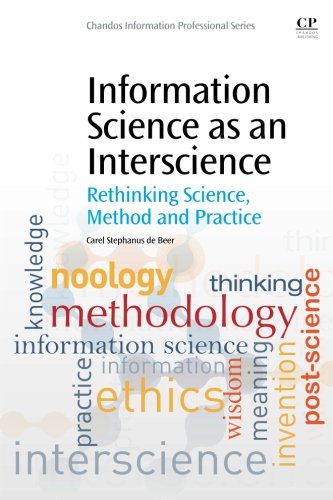

Most ebook files are in PDF format, so you can easily read them using various software such as Foxit Reader or directly on the Google Chrome browser.
Some ebook files are released by publishers in other formats such as .awz, .mobi, .epub, .fb2, etc. You may need to install specific software to read these formats on mobile/PC, such as Calibre.
Please read the tutorial at this link: https://ebookbell.com/faq
We offer FREE conversion to the popular formats you request; however, this may take some time. Therefore, right after payment, please email us, and we will try to provide the service as quickly as possible.
For some exceptional file formats or broken links (if any), please refrain from opening any disputes. Instead, email us first, and we will try to assist within a maximum of 6 hours.
EbookBell Team

4.1
40 reviewsScience is first and foremost an intellectual activity, an activity of thought. Therefore, how do we, as information scientists, respond intellectually to what is happening in the world of information and knowledge development, given the context of new sociocultural and knowledge landscapes? Information Science as an Interscience poses many challenges both to information science, philosophy and to information practice, and only when information science is understood as an interscience that operates in a multifaceted way, will it be able to comply with these challenges. In the fulfilment of this task it needs to be accompanied by a philosophical approach that will take it beyond the merely critical and linear approach to scientific work. For this reason a critical philosophical approach is proposed that will be characterised by multiple styles of thinking and organised by a compositional inspiration. This initiative is carried by the conviction that information science will hereby be enabled to make contributions to significant knowledge inventions that may bring about a better world. Chapters focus on the rethinking of human thinking, our unique ability that enables us to cope with the world in which we live, in terms of the unique science with which we are involved. Subsequent chapters explore different approaches to the establishment of a new scientific spirit, the demands these developments pose for human thinking, for questions of method and the implications for information science regarding its proposed functioning as a nomad science in the context of information practice and information work. Final chapters highlight the proposed responsibility of focusing on information and inventiveness and new styles of information and knowledge work.